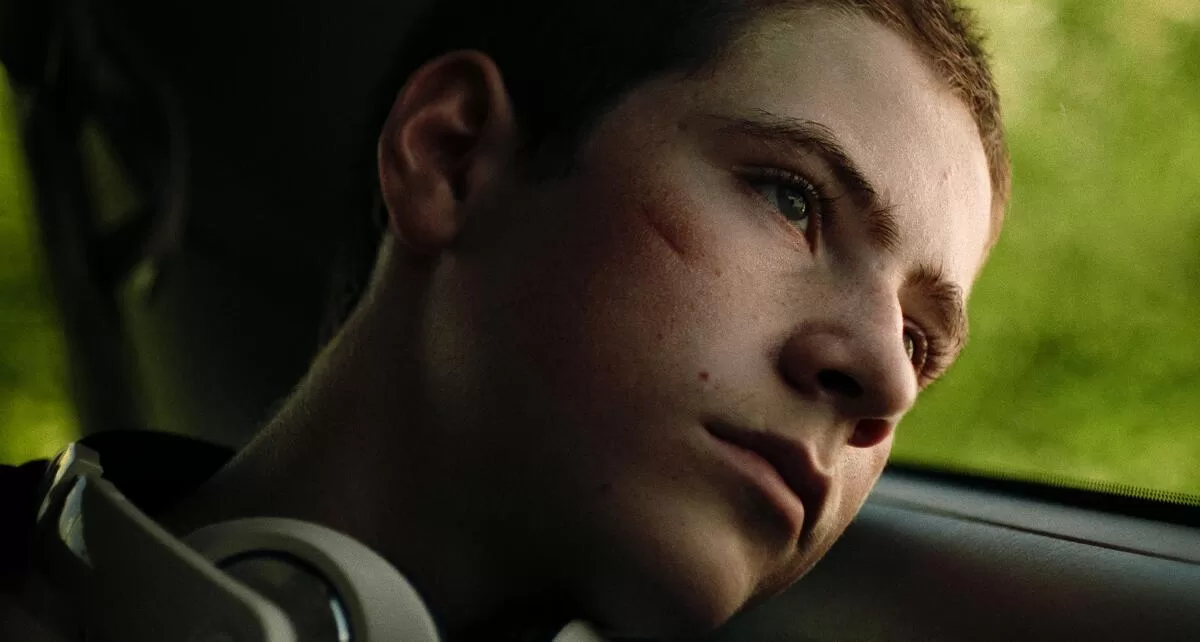‘Knight of Fortune’
In the dryly unsentimental directorial debut of Danish filmmaker Lasse Lyskjær Noer, a chance encounter between two bereaved men in a morgue leads to a set of comic and emotional breakthroughs.
Aiming to create a nuanced portrayal of grief, balancing the sterility of death with the warmth of human connection, Noer found himself writing something humorous. “Laughter is a universal language,” he says. “It brings us closer together, and it’s like a valve that gives relief from pain. The challenge is to not puncture the gravity of the story with the humor. I think what makes us laugh in ‘Knight of Fortune’ is incongruence. … You expect something, but then something else happens.”
Noer was inspired to make “Knight of Fortune” after experiencing losses in his own life. “With this film, I wanted to remind us of the importance of being there for each other in life’s darkest moments,” he says. “That’s why it was important for me to make a film that encompasses the darkness of grief but also the warmth, love, and sometimes humor in between.”
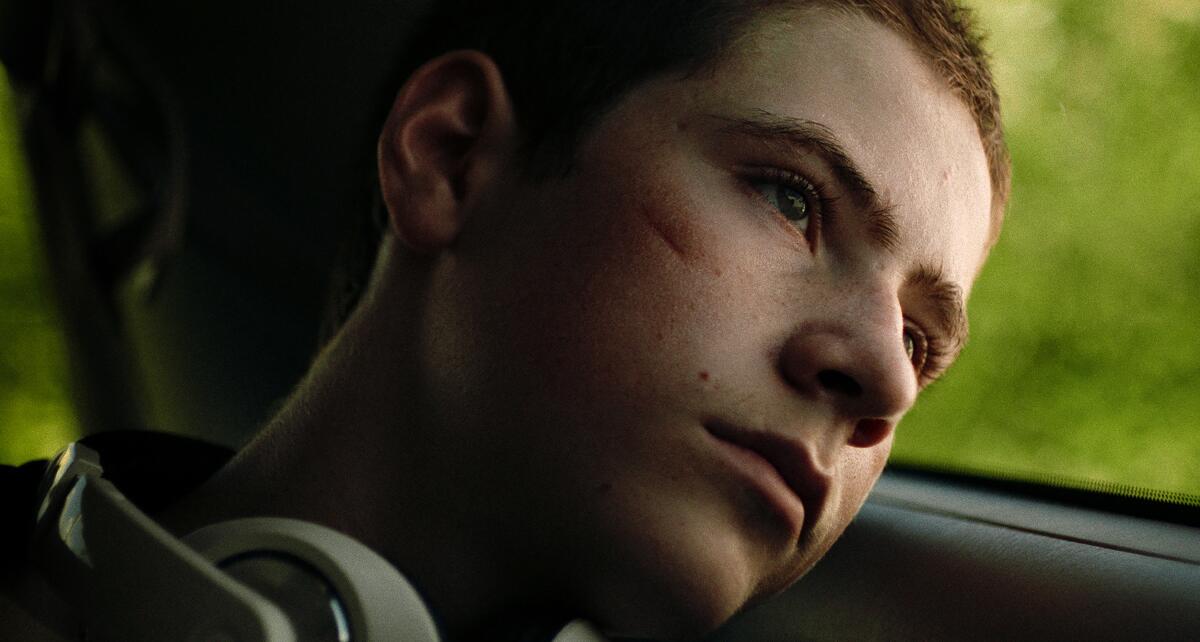
The Oscar-nominated live-action short film “Invincible” recounts the last 48 hours in the life of Marc-Antoine Bernier, a 14-year-old boy on a desperate quest for freedom.
(ShortsTV)
‘Invincible’
Tackling the intricacies of adolescence and mental health, Canadian director Vincent René-Lortie’s film follows the final days of a 14-year-old boy’s life. Told with rigor and empathy, it was inspired by the true story of the director’s childhood friend.
According to René-Lortie, staying true to the story’s psychological complexity posed a particular sort of narrative challenge. “Unlike typical visible obstacles in movies, mental health struggles are internal,” he says. “My aim was to depict someone grappling with inner turmoil, facing battles both within themselves and against a society unequipped to understand. Indeed, conveying such complexity within the constraints of a short film format is daunting.”
“Making this film was my way of reconnecting with him, of trying to understand his journey and the reasons behind his tragic end,” says René-Lortie. “The primary focus has always been to unravel the events leading up to his passing, which is why I chose to center the film on the 48 hours preceding that pivotal moment. The film doesn’t solely focus on the specific incident of his death; it delves deeper into the ‘why’ behind this tragedy, exploring the nuanced layers that accompanied it.”
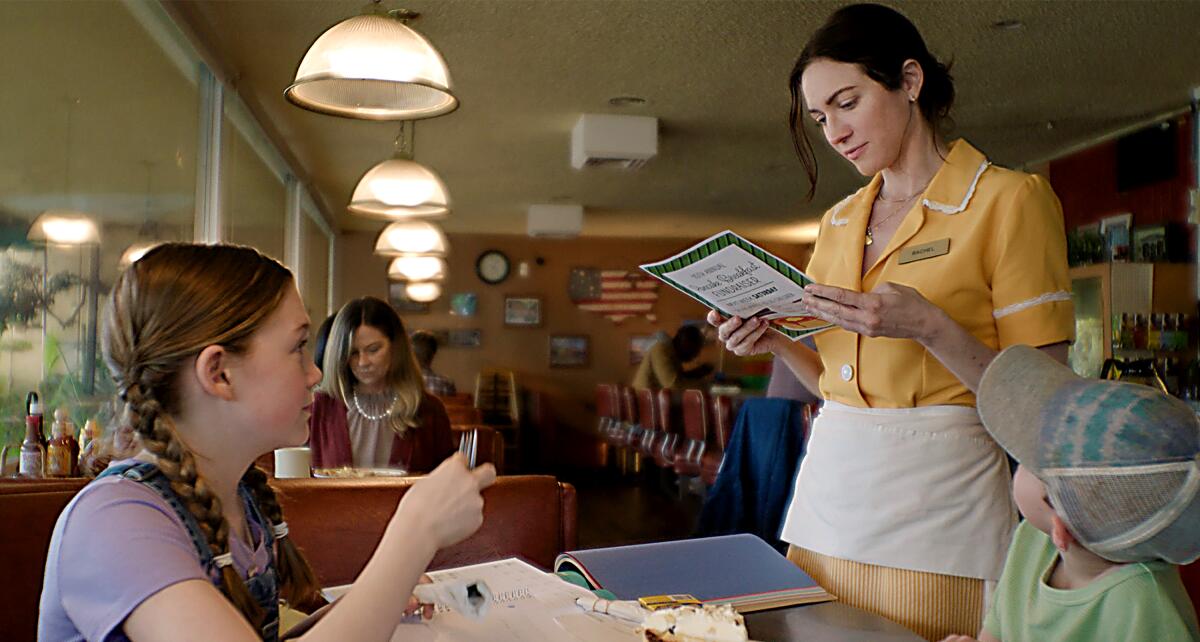
“Red, White and Blue” touches on the Supreme Court decision to reverse Roe vs. Wade. Starring Brittany Snow as a young mother who must cross state lines for an abortion after an unexpected pregnancy, the film felt “urgent and necessary” to dramatize the human costs of that decision, says director Nazrin Choudhury.
(ShortsTV)
‘Red, White and Blue’
One of the first major films to confront the post-Roe legal environment, Nazrin Choudhury’s “Red, White and Blue” follows Rachel (Brittany Snow), a cash-strapped single mom who travels from Arkansas to Illinois (with her young daughter in tow) seeking an abortion.
“I don’t think any of us can escape the realities of the landscape we’re living in following the Supreme Court’s decision to reverse Roe v. Wade in 2022,” Choudhury says, adding that it felt “urgent and necessary” to dramatize the human costs of that decision. “The overturning of a landmark ruling that sought to protect reproductive rights and bodily autonomy for almost 50 years demonstrated that we must never again assume or take for granted that those basic human rights will always be available to us.”
But rather than foregrounding an explicitly political struggle, “Red, White and Blue” takes shape as a road trip story, full of detours and discoveries, with two characters in search of a very specific type of freedom.
“While our story delves into a real crisis for millions of Americans,” Choudhury says, “it was important for me to show the full depth and breadth of the human experience. Joy and sadness aren’t mutually exclusive, and that duality can, in fact, coexist. The tone of this film was ultimately balanced by the underlying thematic idea of what it actually means to be a parent and, as such, it is unapologetically a celebration of motherhood.”
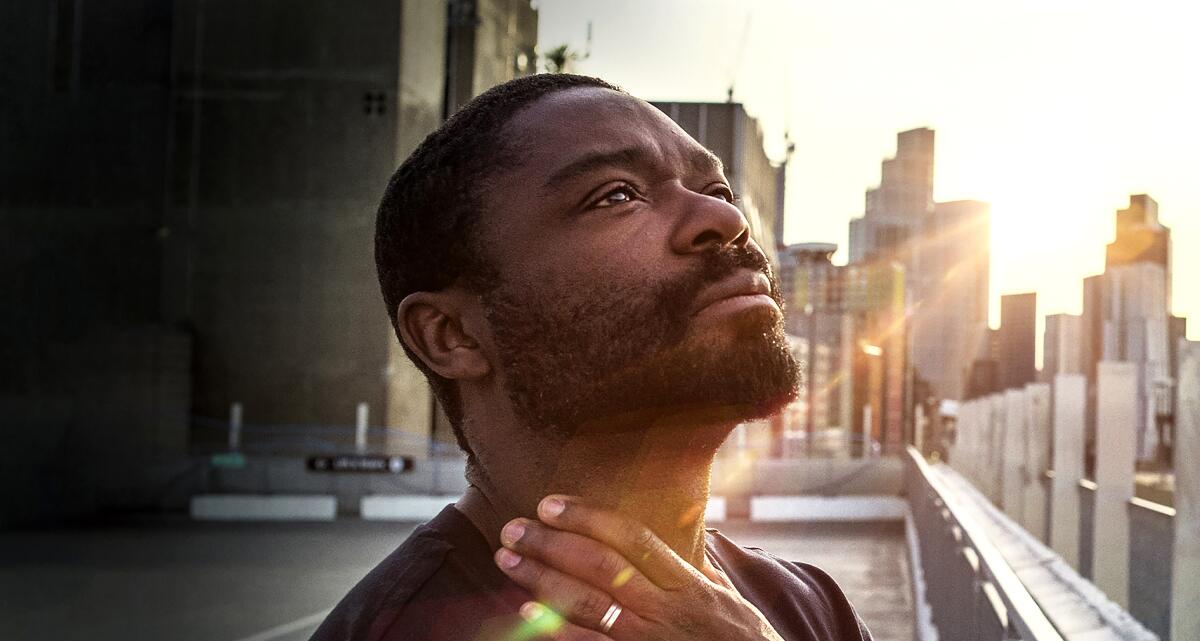
David Oyelowo stars in “The After,” about a man who has to reconnect with himself and society after witnessing a devastating random attack.
(ShortsTV)
‘The After’
In the opening minutes of the directorial debut from photographer Misan Harriman, a London businessman (David Oyelowo) witnesses a violent crime that upends his seemingly comfortable life. When “The After” reintroduces him after a narrative break, he’s a quiet, grief-stricken ride-share driver; as he encounters different sets of passengers, he wrestles with the decision to take the initial small steps toward confronting his buried trauma.
“It was important to me to not have a traditional happy ending,” Harriman says, “but I wanted to make sure hope, humanity and a sense of self-love were in this story. For many people who are struggling, it’s not so much that they need you to look at them and say, ‘It’s all going to be OK,’ it’s just for them to believe that they matter as they always have, and I hope that sense of healing is in this film.”
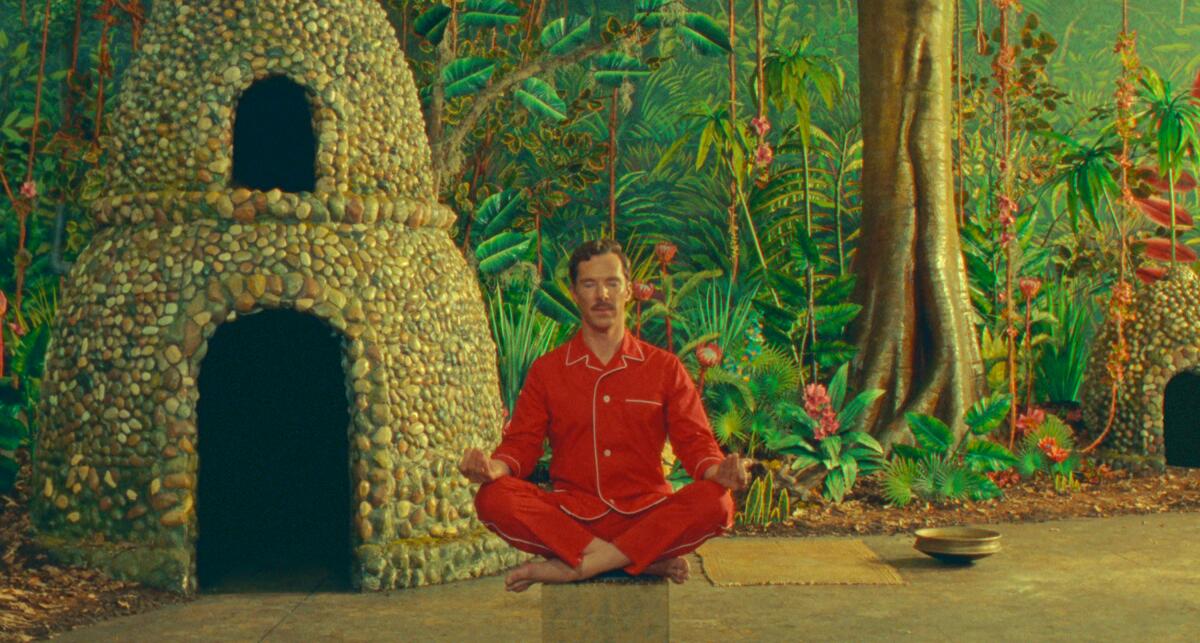
Benedict Cumberbatch stars in Wes Anderson’s “The Wonderful Story of Henry Sugar.”
(ShortsTV)
‘The Wonderful Story of Henry Sugar’
Though his feature-length “Asteroid City” didn’t make this year’s Oscars cut, Wes Anderson makes his debut in the shorts category with “Henry Sugar,” the jewel of a series of Roald Dahl adaptations the auteur made for Netflix.
Showcasing an all-star cast that features Benedict Cumberbatch, Ralph Fiennes, Dev Patel, Ben Kingsley and Richard Oyoade, it’s a whimsical, obsessively designed miniature epic with a Russian doll structure. In the most prominent nested story, Cumberbatch assumes the role of the titular playboy, who develops a supernatural ability to see through objects. Our protagonist attempts to use the skill to cheat at gambling, before discovering more ambitious uses for his talent.
“I certainly had the feeling of, ‘This could be very boring,’” Anderson told The Envelope last year. “But I did not obsess about whether it would work. I knew the key was finding the right actors, because it’s a particular set of muscles that are being used here.”
